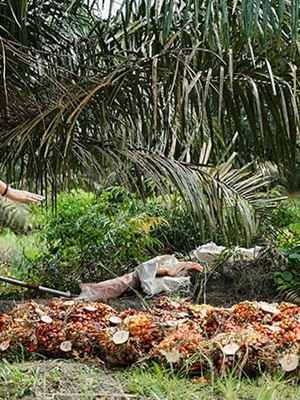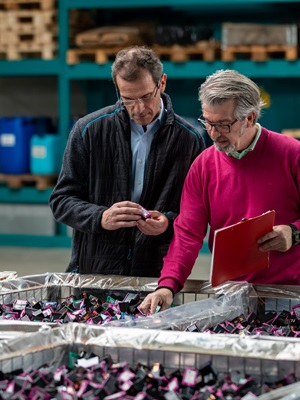The hospitality industry is vital to global economies, driving employment, tourism, and community engagement. However, its rapid expansion has raised concerns about environmental sustainability. In response, governments worldwide are prioritising sustainable practices to mitigate environmental impacts while fostering economic growth. This article explores the crucial role of government support in cultivating a sustainable hospitality industry on a global scale.
Connecting Government Support to Sustainability Initiatives
Governments play a pivotal role in fostering environmentally responsible practices within the hospitality sector through policies, incentives, and partnerships, thereby ensuring the industry's economic viability. The global imperative for sustainability is evident. Issues like resource depletion, waste generation, and climate change threaten the industry's long-term viability. According to the World Travel and Tourism Council (WTTC), tourism contributes 5% of global carbon emissions, with the hospitality sector accounting for 1%. Recognising this urgency, governments worldwide have initiated efforts to support and shape sustainable practices within the hospitality industry. This includes formulating government initiatives and policies aimed at driving sustainable transformation, implementing robust national frameworks for sustainable transformation including waste management and recycling policies, promoting renewable energies and advocating for water conservation measures. Additionally, governments provide financial incentives and grants, certification and recognition programmes, and establish monitoring, reporting, and evaluation mechanisms. Moreover, public-private partnerships (PPPs) play a crucial role in driving sustainability. Below, we explore examples from around the globe.
Government Initiatives and Policies: Driving Sustainable Transformation
Governments globally are implementing robust frameworks to encourage sustainable practices. Please see below examples.
Denmark
• Financial Incentives: Grants and tax breaks support businesses investing in sustainable practices, like energy efficiency and waste reduction.
• Green Key Certification: This government-supported programme sets strict environmental and social responsibility standards for tourism establishments.
Sweden
• Strict Waste Management: Regulations require hotels and restaurants to sort waste into various categories (e.g., food waste, paper, plastics, etc.) to facilitate recycling and reduce landfill usage.
• Focus on Food Waste: Policies encourage food waste prevention and might require large-scale operations to install food waste disposers.
*Only 1% of Sweden’s trash is sent to landfills. By burning trash, another 52% is converted into energy and the remaining 47% gets recycled. The amount of energy generated from waste alone provides heating to one million homes and
electricity to 250,000.
Waste Management and Recycling Programmes: Minimising Environmental Footprint
Governments encourage waste reduction and recycling:
• A mandatory food waste recycling programme: requires businesses to separate food waste for composting or biofuel conversion. This programme has diverted millions of tons of food waste from landfills.
• Deposit-Refund System: operates a nationwide deposit-refund system for beverage containers. Consumers pay a small deposit when purchasing bottled drinks or other beverages, which they receive back upon returning the empty
containers for recycling.
Italy
• Pay-As-You-Throw (PAYT) programmes: Municipalities design and implement the programme, residents and businesses pay based on the waste they generate, incentivising reduction and recycling.
• Extended Producer Responsibility (EPR) schemes: Producers are financially responsible for collecting and recycling specific products after their lifespan.
South Korea focuses on mandatory separation and specialised processing of specific waste streams (food waste) while Italy utilises economic incentives (PAYT) and producer accountability (EPR) to encourage responsible waste management.
Investment in Renewable Energy: Powering Sustainable Hospitality
Governments promote renewable energy sources.
Germany
• Hotel Solar Portal: Launched in 2012 with government support, this portal provides resources and information to encourage hotels to adopt solar energy. It connects businesses with installers, offers technical guidance, and highlights
the financial benefits of switching to solar power.
France
• Tax Breaks: The French government offers tax breaks to businesses, including hotels, that invest in renewable energy systems like solar panels or geothermal heating. These incentives make renewable energy options more financially
attractive and encourage wider adoption within the hospitality sector.
Water Conservation Measures: Preserving a Precious Resource
Governments utilise various strategies to support and incentivise water conservation within the hospitality industry.
Australia
• Rebates or financial incentives: The Australian government (both at the federal and state level) offers to businesses, including hotels, that upgrade to water-efficient appliances and fixtures. These incentives help offset the costs
associated with adopting new technologies.
• Grants: Some regions in Australia offer grants for conducting professional water audits to help businesses identify water-saving opportunities. These audits are valuable tools for hotels to pinpoint leaks and potential areas for
water use reduction.
Financial Incentives and Grants: Catalysing Sustainable Investments
Governments offer financial incentives and grants to encourage sustainable investments in hospitality businesses.
The European Union (EU)
Green Renovation Wave for Hotels is a comprehensive initiative aimed at accelerating the renovation of existing hotels to make them more energy-efficient and sustainable.
• Renovation Loans with Reduced Interest Rates: The EU, in collaboration with national and regional banks, offers hotels access to loans with lower interest rates compared to traditional commercial loans. These loans are specifically designed to finance energy-efficient renovations, making them more accessible and financially attractive for hotels.
• Grants for Deep Renovation Projects: The EU provides co-funding grants to support hotels undertaking deep renovations that go beyond basic energy-efficiency upgrades. These grants can cover a significant portion of the renovation costs, incentivising hotels to invest in more comprehensive sustainability improvements.
Certification and Recognition Programmes: Upholding Environmental Standards
Government-supported programmes enhance industry standards and promote sustainability.
• The Green Restaurant Certification in the US: Validate environmental sustainability efforts and stimulate consumer demand for eco-friendly dining options. Established in 1990, the programme awards certification to restaurants
that meet rigorous environmental criteria across seven key categories: energy, water, waste, disposables, chemicals & pollution, food, and building & furnishing.
• Achieving certification requires earning GreenPointsTM in each category: demonstrating the restaurant's commitment to environmental responsibility.
• Tax breaks or incentives to businesses: Certain states and municipalities offer these to businesses, including restaurants, that implement sustainable practices aligned with the programme's criteria.
Monitoring, Reporting, and Evaluation Mechanisms: Ensuring Accountability
Government-supported programme holds businesses accountable for their environmental performance in the hospitality industry.
United States (California)
The California Green Lodging Programme is a voluntary certification programme for hotels and other lodging establishments.
• Monitoring and Evaluation: Hotels submit environmental data and undergo third-party inspections.
• Tiered Certification: Bronze, silver, and gold levels incentivise continuous improvement.
• Government Recognition: Officially recognised programme enhances credibility.
• Public Accountability: Public directory with performance data empowers informed consumer decisions.
Public-Private Partnerships (PPPs): Collaborating for Impact
PPPs bring together government and private sector resources for greater impact.
Southeast Asia
• Green Pearls is a prominent example: initiative promoting sustainable hospitality practices within Southeast Asia. Established in 2009, it is a collaborative effort involving. The German Federal Ministry for Economic Cooperation and Development (BMZ) provides financial and technical assistance to support the programme.
• Luxury hotels in Southeast Asia: Participating hotels commit to adopting rigorous sustainability standards and implementing eco-friendly practices in their operations.
This collaboration fosters sustainable practices within the hospitality industry, contributing to a more responsible and environmentally responsible tourism sector in the APAC region.
A Call to Action - Navigating Towards Sustainability
As the hospitality industry charts its course towards sustainability, governments must continue to innovate and collaborate. Their support is indispensable in fostering a sustainable hospitality industry that harmonises economic growth with environmental stewardship. By leveraging policy interventions, financial incentives, and partnerships, we can build a future where hospitality thrives in harmony with nature, leaving a legacy of sustainability for generations to come.
Posted 06/03/2024

















